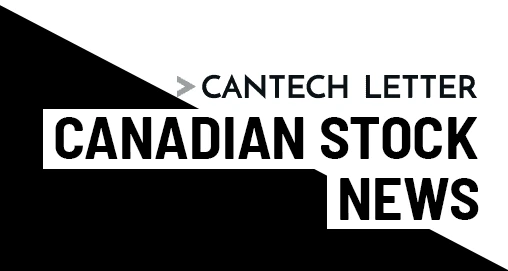Mining; increasingly dependent on technology


After buying your double-double at Tim Horton’s, do you ever wonder where the coins came from? Long before they were turned into the currency we all carry around in our pockets, they were raw metals hidden in the earth.
How do mining companies know where to drill to find metal deposits? And once they find the deposits, how do these companies extract the minerals? The answers almost always lie in mining technologies.
The application of technology was once a way for miners to get a leg up on competition. Today, it’s a necessity in an increasingly competitive environment. Many of Canada’s best and brightest tech minds have followed the money and applied their innovations to the mining and metals space.
Mining tech, from IT and computer software systems that provide 3D models of resource deposits to chemical process technologies used to separate minerals from ore, have improved the efficiency of extraction by leaps and bounds; even over the past decade. Yet some mining technologies have been around for centuries. In the production of aluminum, for instance, the first part of the process was invented in 1887 by Russian scientist Karl Bayer. Bayer discovered that aluminium oxide (alumina) could be produced from bauxite when using sodium hydroxide. The second part of the process, the Hall-Héroult process, was developed one year earlier in 1886. It involves dissolving alumina in molten cryolite and electrolysing the molten salt bath to obtain pure aluminium metal. The process was discovered independently by American chemist Charles Martin Hall and French scientist Paul Héroult. In 1888, Hall opened the first large-scale aluminium production plant in Pittsburgh, which eventually evolved into the Alcoa corporation.
Today, we look at three Canadian listed mining companies developing innovative process technologies. We start with an aluminum miner in the province of Quebec that is pitting itself against the 124 year old Bayer process.
Orbite V.S.P.A. Inc. (TSX-V: ORT.A)
It has long been known that alumina can be refined from aluminous clay deposits but this process is not widely exploited because, historically, the quality and cost of alumina from clay has not been competitive with alumina from bauxite using the Bayer process. Orbite has a patented process for extracting alumina from aluminous clay. This past February the company completed a pilot plant with a production rate of one tonne per day of alumina. The plant is reportedly capable of producing both smelter grade alumina and high-purity alumina in a cost-effective manner.
On July 7th, Orbite completed a $57.5 million bought deal financing through its lead underwriter Mackie Research Capital Corporation. Mackie Research analyst Matt Gowing calls Orbite a “game-changing alumina production company” and has a one year price target of $7.50 on the company’s stock. Gowing says, “According to Orbite’s engineering design and pilot plant work thus far, the company is targeting a cash cost of operating the metallurgical plants to be approximately less than half of the $280 cost per tonne or ($140/tonne) incurred by bauxite-based alumina producers”.
Not only does Orbite control their technological process, they also control their resource supply. Recently, the company updated its NI 43-101 compliant resource estimate at the Grand Vallee property from 75-300 million tonnes to 1 billion tonnes of aluminous clay grading, at an average, 23.13% alumina. Shares of the company have been on a tear in 2011. Starting the year at $0.90, Orbite’s shares are currently trading at $3.38 and has lately been one of the TSX’s most actively traded stocks.
Verde Potash PLC (TSX-V: NPK)
Verde Potash (formerly Amazon Mining) is developing the Verdete slate, or green slate, potash project in Brazil. On March 8, 2010 Verde Potash received an initial National Instrument 43-101 compliant inferred mineral resource estimation of 105 million tonnes at 10.3% K20 inferred resource for the project.
But this junior potash mining company’s success is also dependent on the utilization of a little technology. Last December, the company filed a patent application in the U.K. for the production of conventional potash product, muriate of potash (KCl) and sulphate of potash (SOP) from Verdete slate. The company plans on utilizing a relatively new extraction process that heats Verdete slate to almost 1,100 degrees Celsius to extract the potash. This process results in a new fertilizer, ThermoPotash, that the company believes will be more suited to the needs of the Brazilian marketplace.
Brazilian soil is much more acidic than soil in other parts of the world, and the problem has been compounded by the agricultural use of potassium chloride. And potassium chloride, the fertilizer produced in Canadian potash mines, also washes away too easily in Brazil’s heavy tropical rains. Shares of Verde Potash currently trade in the $7.50 range valuing the company at over $240 million.
Alexander Mining PLC (TSX-V: AXD)
Alexander Mining is a relatively new issuer on the TSX Venture Exchange hitting the Canadian market in January earlier this year. The company is also listed on the AIM Exchange in the U.K. Alexander is a mining and mineral processing technology company. Through it’s wholly owned subsidiary MetalLeach Limited, Alexander controls two proprietary (patent pending) hydrometallurgical mineral processing technologies. These technologies are designed for the extraction processes of certain base metal deposits.
Of the aformentioned techniques, the copper process has been demonstrated at pilot plant scale for heap leaching and at bench scale for agitated leaching. The cobalt process has been bench scale tested for both heap and agitated leaching. While development of the zinc process has led to a new solvent extraction process for which patents are pending. Shares of Alexander mining last traded at $0.11 on the TSX-V Exchange valuing the company at $15 million.
_________________
__________________
Nick Waddell
Founder of Cantech Letter
Cantech Letter founder and editor Nick Waddell has lived in five Canadian provinces and is proud of his country's often overlooked contributions to the world of science and technology. Waddell takes a regular shift on the Canadian media circuit, making appearances on CTV, CBC and BNN, and contributing to publications such as Canadian Business and Business Insider.
